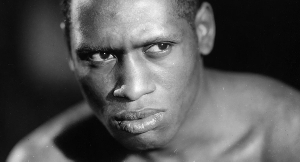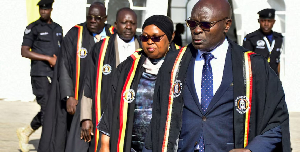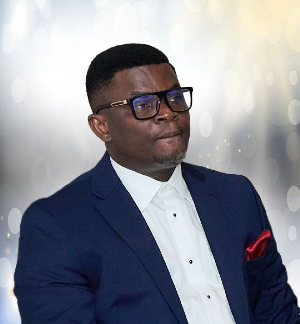History. (1)
‘‘At long last the battle has ended; and Ghana your beloved country is free forever!’’
These were the words declared on the eve of independence by an emotional Kwame Nkrumah who was cognizant of the fact that the struggle for independence had been extremely difficult; not only had many shed tears and blood, precious lives had been lost as well. The struggle for independence by the likes of Paa Grant, Corporal Atipoue, Sergeant Adjetey, Kwame Nkrumah with other members of the Big Six and many others whose names cannot be mentioned here, was founded on the conviction that Ghanaians were capable of managing the affairs of their country without outside or external interference; hence the immeasurable sacrifices they made to disentangle Ghana from the shackles of colonialism and exploitation.
Kwame Nkrumah affirmed in his independence declaration speech that Ghana would prove to the world that ‘‘the black man is capable of managing his own affairs.’’ True to his words, Nkrumah made visible improvements in the Ghanaian economy. He set up many public corporations and state institutions to cater for the agricultural and industrial needs of the country. He built social services such as schools, hospitals, and roads. With regards to education and health, Nkrumah’s Ghana was the first in Africa to introduce free education and free medical care for her people. The building of three more universities (K.N.U.S.T, G.I.J and U.C.C) Akosombo dam, the Tema motor way, the Tema Harbour and city were the works of the highly esteemed Nkrumah. Not only was Ghana one of the wealthiest countries in Africa at that time, her standard of living was also one of the highest. Ghana was rich, so Nkrumah could afford to give her neighbours financial aid; the ten million dollars he gave to Sekou Toure’s Guinea is an incontrovertible example.
Nkrumah’s Ghana was powerful and influential; not even our ‘younger brother’ Nigeria could boast of the sort of power and influence Ghana wielded at that time. People from far and wide came to Accra to be inspired.
Nkrumah’s vision was to see the countries of Africa unite to form a united African state; it was this vision that led to the formation of the Organization of African Unity in 1963. Nkrumah felt that the creation of the ‘United States of Africa’ would not only bring security for Africa’s mineral resources and end a situation whereby Africa’s gold, diamond, Petroleum, uranium etc, were ‘exploited with foreign capital only to enrich foreign investors’, but it would ultimately bring about ‘full development of Africa’s natural resources for the benefit of the people.’
Unfortunately, Nkrumah on the 26th of February 1966 was overthrown in a coup carried out by members of his own military who were manipulated and supported financially and logistically by the American CIA.
This in my humble opinion was the defining moment in Ghana’s history; because since the exit of Nkrumah from the helm of Ghana’s political affairs, we have had nothing but a phenomenal fall from grace.
Ghana has gone from being one of the wealthiest countries in Africa to being one of the poorest. The standard of living which was one of the highest in Africa during Nkrumah’s days has become very low; there is massive unemployment in the country; there is corruption in the public service; the standard of education has fallen drastically; and there is extreme poverty and lack of basic amenities in many regions.
Unlike in the 1960s when Ghana was united basically because Nkrumah suppressed tribalism and brought a sense of national unity, today’s Ghana is polarised and split along tribal lines. Needless to say, there is general dissatisfaction among Ghanaians. It’s sad to note that countries like Malaysia and South Korea who were in the same category with Ghana with regards to economic development have gone on to become developed; while Ghana continues to rely on foreign aid.
Our problems can be attributed to years of military interventions that led to mismanagement of the economy by leaders who were either commited to their own cause at the expense of the state or simply lacked the acumen to move the country forward. We thought a return to civilian rule will turn things around for Ghana and help improve the standard of living of her citizens; however, we have never been more disappointed. Things are going from bad to worse. Existing facilities and infrastructure are in dilapidated states. There are huge problems in the health, education, agricultural, and trade and industry sectors.
In the educational sector for instance, existing facilities and infrastructure are deteriorating. Most of the seasoned doctors, engineers, accountants and politicians we have today, including the old professor- President Mills-, attended public basic schools popularly known as ‘syto’ and today they are hugely successful. This is because they were given the best of training by the teachers they had at that time. It is disconcerting, however, to note that the future looks bleak for most of the students attending public or government owned basic schools in Ghana today. They are being taught by unmotivated teachers who don’t give their all. They lack books and other educational materials. There are also not enough classrooms, so some students learn under trees in absolute vulnerability to the weather. No wonder the Ghana Education Service came out a few weeks ago to state that only fifty percent of those who sat for the BECE this year passed. Another effect of Nkrumah’s overthrow is the loss of our self-belief. Because Nkrumah had the belief that the ‘Black man is capable of managing his own affairs’, his government made efforts to diversify the economy by moving Ghana from a primarily agricultural economy to a mixed agro-industrial one. He set up factories which processed some of the raw materials Ghana exported. This was done basically to make Ghana self-sufficient and reduce her vulnerability to economic down turns.
Successive governments, however, have over the years been cynical about the ability of Ghanaians to manage their own affairs; and that explains why almost all state institutions (most of which were set up by Nkrumah) have been sold off to foreign companies to prevent them from collapsing.
If as a nation, we have people who have attended universities such as Harvard, Columbia University, Oxford University, London School of Economics and all these people cannot manage our state institutions successfully for the benefit of all Ghanaians, then the future is bleak. It is agonizing to note that most of these state institutions that have been sold to foreign investors are doing extremely well under their new managements and those investors are packing all the profit away to their countries while they give ‘pathetic’ sums of money to the government as tax.
This lack of self-belief has led to a situation whereby Ghana imports virtually everything and exports very little. Even basic food stuffs such as rice, tomatoes, onions and many more are not excluded.
The situation is so pathetic that a visibly disappointed Obama was forced to state that, not only can Ghana produce sufficient food to feed her citizens, she can also ‘export food’. Our problems as a country have been compounded by the fact that most of the politicians and public servants of today, unlike Nkrumah, mainly seek their own interest at the expense of that of the nation. As a result of this, visionless leadership, corruption and bribery in public offices, perpetual embezzlement and misappropriation of public funds, as well as insensitivity on the part government to the plight of deprived citizens have plagued the country.
In view of all these, one wouldn’t be wrong to conclude that the overthrow of Nkrumah, who is regarded by many as the greatest African ever, has done Ghana more harm than good. Also, one cannot help but wonder if another visionary like Nkrumah will arise to liberate Ghanaians and Africans from perpetual poverty and economic hardship. God bless our homeland Ghana! Samuel K. Obour samuelkwason@yahoo.com
The Author is studying Communication Studies at the Ghana Institute of Journalism.
Opinions of Wednesday, 30 September 2009
Columnist: Obour, Samuel K.














